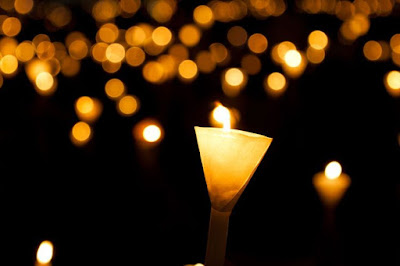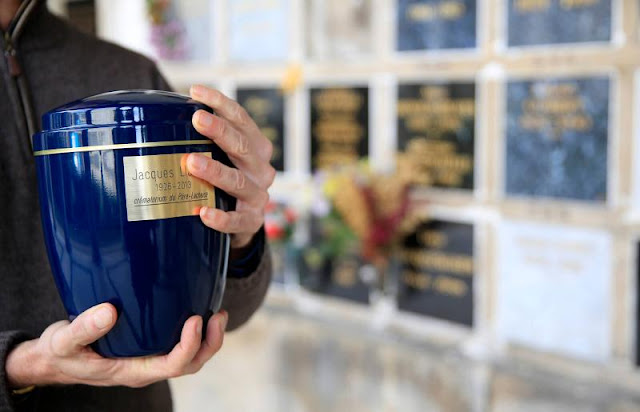What is cremation?
Cremation has been introduced to the world for more than 5000 years now, but many people are still unaware of the process. Many people are unaware of what happens behind the scenes and feel like it is even more complicated than the other burial methods. But in reality, it is not that complicated is a cheaper option.
In simpler words, the process of cremation involves reducing the
body to very small particles known as ashes, with direct exposure to high heat
and evaporation in a specific furnace known as a cremation chamber.
The following steps are involved in the process of cremation:
●
The first step is identification. The dead
person is identified, mostly by a person who is of family, who will then give
authorization or the approval for cremation. There are different rules in each
state, but it mostly includes important information such as who will receive
the remains and what container is going to be used to store them.
●
The second step of the cremation
process is to bathe and dress the dead person before identification. In
some cases, the family wants a public viewing of their loved one before the
cremation starts. In many states, it is a rule to place the dead body in a
container before the process of cremation starts; that container is usually a
wooden casket or a hard cardboard box.
●
The third step is to move the container with
the body in it to the cremation chamber. This cremation chamber is a specially
designed furnace that receives the fuel through a constant natural gas supply.
Every cremation center follows strict environmental standards so that the air
does not get polluted with all of the burnings which happen during the
cremation process.
●
A single body can get cremated in one cremation
chamber. More than one person can not get cremated at the same time. Multiple
checkpoints were established for the custody check. Moreover, a stainless steel
ID token is attached to the body into the crematory, which then confirms the
identity of the cremated ashes when they get removed, so there are no chances
of mix-ups.
●
The body's end remains are usually ashes that
get directly produced from the bones. As the ashes cool down, metal (from
dental fillings, jewelry, implants, or nails of the casket) gets removed, and
the ashes present in the larger size ground into fine, coarse particles of
ashes.
●
The final step is storing the remaining ashes
in a container either provided by the family or the crematory and gets
delivered to the family.
Reasons for choosing
cremation
There are multiple reasons for choosing cremation over any other
burial method nowadays. These reasons not only contain personal preferences but
many religious concerns as well.
Following are some common reasons why families choose cremation
as a method of disposal for their loved ones:
Different options for a
memorial: Many options are provided in cremation, which typically a
burial does not. The option of cremation gives the ease to plan everything
easily; there is no time restriction that something has to be done at the exact
time. A memorial can be planned easily at any time the family wants with the
remains of the loved one. The family can first hold a simple viewing of the
body of the loved one first and then arrange a huge memorial or scattering
service, which is arranged weeks or even months later the cremation is done
because many people can not travel due to their work schedules and busy lives.
It is a great option for a family that has its members and friends scattered
all around the world in different states or countries. Cremation also provides
an ease to the families so they can focus on the passing of their loved one and
take as much as the time they require to grieve and afterward decide about the
memorial they have to arrange for their family.
Lower cost: The cost of cremation is usually very
low than the traditional
burial services. Direct cremation is one of the least expensive options
of cremation and typically costs a lot less money than a traditional burial
with services. There are different packages for cremation, some of them have more
services, and some of them have fewer services. The cost of cremation depends
on what package you choose. For example, you can transport the body on your own
to the crematory to reduce the overall cost.
Environmental safety: Research shows
that a cremation is an eco-friendly option than other methods of burning and
burial because it saves land which can be used for planting trees and food.
Reasons for choosing
cremation
Many factors are included in the process of cremation, which can
increase the cost of the services. Following are some of the factors mentioned
below:
●
Labor makes sure there are no mix-ups in the
chain of custody and takes care of the identification throughout.
●
If the cremation provider owns the crematory,
then the cost is a little less as compared to the cost of a cremation center
owned by someone else.
●
Location of the cremation provider. If the
cremation center is present in a very populated area, then the rates would be a
little higher because of the services it will be providing.
●
The transport fees are also included. The
travel distances to pick up the dead body are also included in the cost.
●
Local environmental safety factors are also
included to ensure that the air does not get polluted.
It
may take a longer time for you to take care of yourself during the grieving
process, but all you have to do is remember that you are not alone on this, and
if you need extra support, you can always reach out to the family and friends
around you.
You
can always reach ADirectCremation
on our helpline, 352-354-4413, which is available 24/7.




Comments
Post a Comment